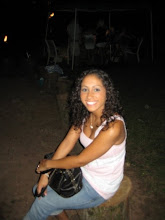At Mitchell Elementary School, the need for a culturally competent teacher is crucial. To me, the culturally competent teacher needs to be able to cope and understand different cultures and different views that children have and/or might have instilled in them already.
The children of Mrs. Kelly's classroom in room 308, are all noticeably different, but yet all the same. About 98 percent of the children in there are of a minority; Hispanic, Black, Asian, Native American, and so on. In the classroom there are only two caucasian children. Most of the children who are of Hispanic descent are bilingual, speaking both English and Spanish. Since the children at Mitchell do tend to be so diverse, this is something that our society can benefit greatly from.If the future of our children is to grow up submerged in a world of bilingual, our students will be so much more cultured and globally aware of their surroundings.
Also, Mitchell Elementary School is located right no the outskirts of downtown Providence, therefore most of the children have grown up and lived in a more city-like atmosphere. Because of this, I've notice that the students are more aware of social trends and happenings. For instance, although only 9 years old, roughly half of the classroom has a cell phone. Compared to when I was a kid, I didn't have one until I was fourteen. But on a more serious note, a handful of kids have experienced more serious things, things that a 9 year old shouldn't be experiencing this early on in life. For instance, an African-American boy, named, Anthony*, in the classroom got in trouble one day for bringing a large pocket knife to school. Anthony said he wasn't going to hurt anybody but his dad had just gotten it for him to protect himself. This was something that caught me extremely off guard, but really opened my eyes. It goes to show that kids are more aware of things than we think they are. The impressions that we make on them are long lasting and something that they usually follow in the footsteps of whoever is closet to them, which in Anthony's eyes, was his father.
I felt that this experience strongly related it Allan Jonson's article, "Our House is on Fire". In his article, Johnson discusses the issue of race, how people tend to feels towards it, and how society typically views it. I felt that it related to this because in his article, Johnson states that "Supposedly, the strange and unfamiliar bring out some innate human tendency towards fear of the unknown and intolerance of difference." This was clearly exemplified by some of the students in the classroom and myself in this particular situation. The students and myself became filled with fear when it was announced that Anthony has a knife on him. We were unaware of the reasons why we had it and let a feeling of curiosity as well as fearing the unknown fill our minds. I feel like this also demonstrated a sense of racism and privilege in a way. The part of racism came into play because, ashamed to admit it, I feel like I did at first discriminate against Anthony. Because of the stereotypes that society gives us, I feel like I used those stereotypes on Anthony during this experience. Had it been a white student, of the same gender and age, I feel that I might have been more forgiving. I might have used the excuse "Oh well they don't really know what that means or what that's for. They just saw it and picked it up because they liked how it looked". But since it wasn't a white student, I noticed that I was quick to judge and assume that even though Anthony was a young male, one such as the supposed "white student" could have been, that I was more app to think badly of the student, thinking that his intentions were meant to be ill mannered. This is what Johnson talks about in his article. He talks about the ever so prominent "privilege" that white people have. This privilege means that because they have a certain skin color, they are seen in a certain light, almost considered a better light. And this situation that occurred is just one of the many incidents that occurs on a daily basis for some people in our society.
Wednesday, November 25, 2009
Subscribe to:
Post Comments (Atom)

This comment has been removed by the author.
ReplyDeleteThanks for sharing the incident with Anthony. You examine it closely, with an honest look at your own bias. A bit of clarification, however. Johnson's comment begins with an important word: "Supposedly." He actually goes on to challenge this oft-repeated belief. He argues, in fact, that it is not the unknown that we are afraid of, but what we think we do know about those outside of our every day experience. Do you think your experience bears this out?
ReplyDeleteDr. August